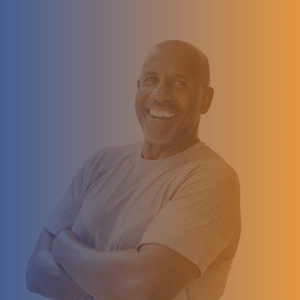
DEI Starter Toolkit
Home / DEI Starter Toolkit
Welcome to your DEI Starter Toolkit, a practical, curated list of resources to help your organisation start building a more inclusive workplace. Our free kit contains key terms, videos, checklists and tools to help your organisation take the first steps towards meaningful change.
How to use this toolkit
This toolkit is designed to be flexible. Simply jump to the section you need the most.
- New to DEI? Start with frequently asked questions and the glossary terms.
- Looking for practical next steps? Explore our best practice guides and self-assessment.
- Are you training a team? Browse our explainer videos, conversation starters or DEI training.
DEI Starter Toolkit - Contents
Click the links to jump to the section.
- Frequently asked questions
- DEI terms you need to know
- Explainer videos
- Best practice guides
- Conversation starters
- Free DEI training
- Feedback and support
Frequently asked questions
We've collected some of the most common questions around DEI. Expand each section to read more.
DEI (diversity, equity and inclusion) is an organisational framework that aims to advance the fair treatment and full participation of all people, especially groups who have historically been underrepresented or subject to discrimination on the basis of identity or disability.
Watch the video below for more information or view our full definition here.
Diversity, equity and inclusion (DEI) are important for cultivating workplaces that are fair and respectful for all. By embracing the principles of DEI, workplaces can benefit from diverse perspectives, increased innovation and performance, higher job satisfaction, lower turnover rates, better problem-solving and ultimately, increased profitability.
Equality refers to everyone being provided the same resources and opportunities, and treating everyone the same, regardless of the unique challenges faced by certain groups.
Equity acknowledges that not everyone has the same access to opportunities (due to socioeconomic background, for example), so involves providing opportunities based on the specific needs of individuals to achieve fairer outcomes.

The above image illustrates four examples:
- Illustration one (equality): Everyone gets the same-sized box to stand on, regardless of height. As a result, some can see over the fence easier than others - and some can't see at all.
- Illustration two (equity): People are given boxes based on their individual needs. Everyone ends up at eye level because the support is distributed unevenly, but fairly.
- Illustration three (addressing barriers): The opaque fence is replaced with a transparent one, allowing everyone to participate somewhat. The barrier remains but it no longer excludes.
- Illustration four (true inclusion): The fence is removed, showing system redesign, so everyone can participate without needing any accommodations.

Intersectionality refers to how different aspects of a person’s identity (such as race, age, disability, gender or sexuality) combine to create unique modes of disadvantage and privilege.
Considering intersectionality ensures that DEI initiatives address the complex nuances of social identity, ensuring no one falls through the gaps.
Read our full definition of intersectionality.










1. How does your background influence your perspective?
2. Can you recall a time where you felt included - or excluded - at work?
3. How do you differentiate between equity and equality?
4. What does 'belonging' mean to you in the workplace?
5. Have you ever witnessed or experienced microaggressions at work? How did it impact you?
6. How can we support each other in practising inclusive behaviours?
7. Have you recently become aware of any assumptions you've made? How did you recognise and address them?
8. Are there any specific workplace policies we can review to ensure they are inclusive?
9. Whose voices are we currently missing from our conversations?
10. Have you ever felt like you needed to 'cover' at work? What would have prevented that?
Free DEI training

What are employee resource groups (ERGs), what value do they bring to organisations and what are their benefits and limits?
Learn more
Join us as we explore the nature of sexual harassment in the workplace, discussing what it is, its associated behaviours and common misunderstandings.
Learn more

“Bring your genuine self to work”: one of the key statements often seen in recruitment policies and job advertisements, but to what extent should this apply?
Learn more
Carrying out an audit of your organisation’s DE&I activities is a great way to understanding the needs of the business, as well as to identify key actions that you might need to prioritise.
Learn more
Our DEI training programmes are designed with your business' needs in mind. Our courses are backed by science, with no one-size-fits-all approach.
Learn moreFeedback and support
We would like to hear your thoughts!
Did you find our DEI Starter Kit helpful? Was there anything you felt was missing or could be improved?
Your feedback helps make this resource even better. Whether you have a question, suggestion or simply want to share your experience, we're here to listen.
Please get in touch.
Want help getting started on your DEI journey?
Book a complimentary one-to-one consultation session with us and let us explore your specific needs in detail. Contact us to start the conversation today.


